“They basically declared war on him after these shows were broadcast”: When John Lennon alarmed the FBI after platforming radical political ideas in a week-long takeover of American TV
Lennon’s curated week of programming exposed viewers to some controversial figures - and drew the attention of the US government
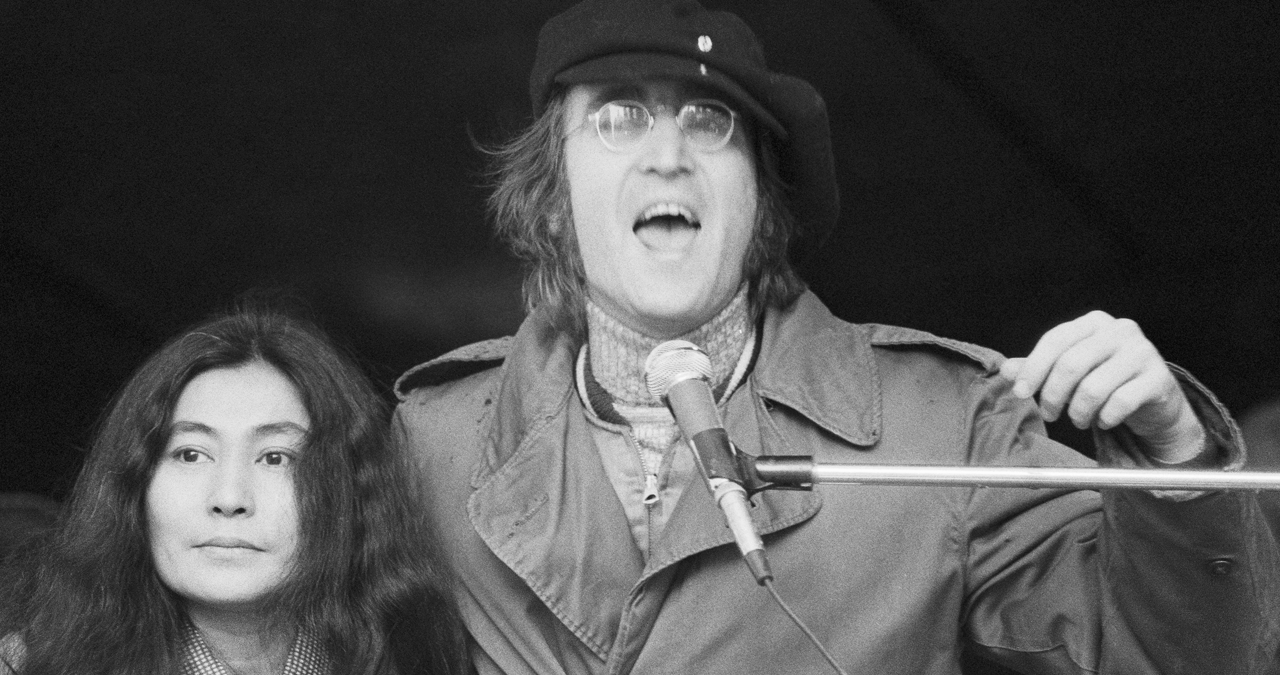
It’s difficult to conceive of just how shocking it was for the Nixon-led US government of the early '70s, when John Lennon - erstwhile Beatle and now a counterculture firebrand - and his wife Yoko Ono, took over over one of America’s biggest daytime television shows. Recalibrating a family-friendly programming touchpoint into a showcase of progressive, left-wing ideology.
The week allowed many with then-radical ideas to reach millions more ears than ever before.
But they were ideas that some saw as an existential threat to the nation.
John and Yoko's aim was to present middle-American viewers to counter-arguments against the government line on numerous social and political themes. Topics spanned feminism, race, the right to protest and government overreach.
Perhaps the most popular daytime television show in America at the time, The Mike Douglas Show reached upwards of 40 million viewers on a regular basis, many of whom lived in the heartlands of the US. Far from the more liberally-minded coastal regions.
Its titular host wasn't unsympathetic to the pair’s politics, but was really more energised by the scale of Lennon’s audience, which could bolster his own viewership considerably…
Envisioned as a fusion of political and social conversation - interspersed with music, of course - the opportunity served as a potential a win-win for both parties. For the Lennons, it provided a much-needed conduit to the deeper parts of America, allowing new intellectual arguments to bypass the conservatively-angled press's editorialising and be presented in a mainstream space.
The week's thrust was an overt rejection of the Nixon administration’s uber-conservative policies, continuing on from Lennon’s fiercely anti-Vietnam stance in the late '60s.
But it would do the ex-Beatle no favours with an administration who, at the time of the shows, were anxiety-ridden ahead of the looming November election.
For Mike Douglas, here was a too-good-to-miss chance to expand his already sizeable viewership, and reel in the Lennon-enthralled youth.
“I tried not to think while I was doing something, ‘Am I shocking the audience?’ My outlook about John was that they were certainly aware of him. People certainly knew about him as being part of The Beatles, who’ll probably go down in history as the biggest group that ever happened anywhere in the world,” Douglas recalled in an interview as part of the video release of the shows in 1998.
“I gotta confess, though, for a man coming from a foreign country and being absolutely fearless in front of the cameras, and saying anything he pleased, John must have known there would be a lot of people who’d certainly be opposed to what he was saying. But he stood his ground, and we brought people with other feelings on the show.”
A pair of key figures invited to participate in the five editions of The Mike Douglas Show, broadcast between February 14th to 18th 1972, were activist, and leader of the Youth International Party, Jerry Rubin and controversial Black Panther co-founder Bobby Seale. Also invited to speak and perform were author of Fathers' Rights and Feminism: The Maternal Presumption Revisited, Runa Uviller and searing comedian George Carlin.

Erik Nelson, the director of a recently released documentary film, Daytime Revolution, which goes into great detail on the week, explained how the production team and the Lennons came together, “All parties, The Mike Douglas folks and John and Yoko and their cavalcade of radicals, really, all agreed to trust one another, which I think was the real interesting part of these shows,” Nelson told KCRW.
Want all the hottest music and gear news, reviews, deals, features and more, direct to your inbox? Sign up here.
“Everyone's trusting everybody will be on their best behaviour, even though there were tremendous chances that things would go completely off the rails. They never did.”
Taped between Jan 31st and February 4th 1972, and aired two weeks later from the 14th onwards, the shows delivered on their promise to enthusiastically - and warmly - introduce the audience to the ideas underpinning the counterculture of the time with deft, charm and Lennon's characteristic humour.
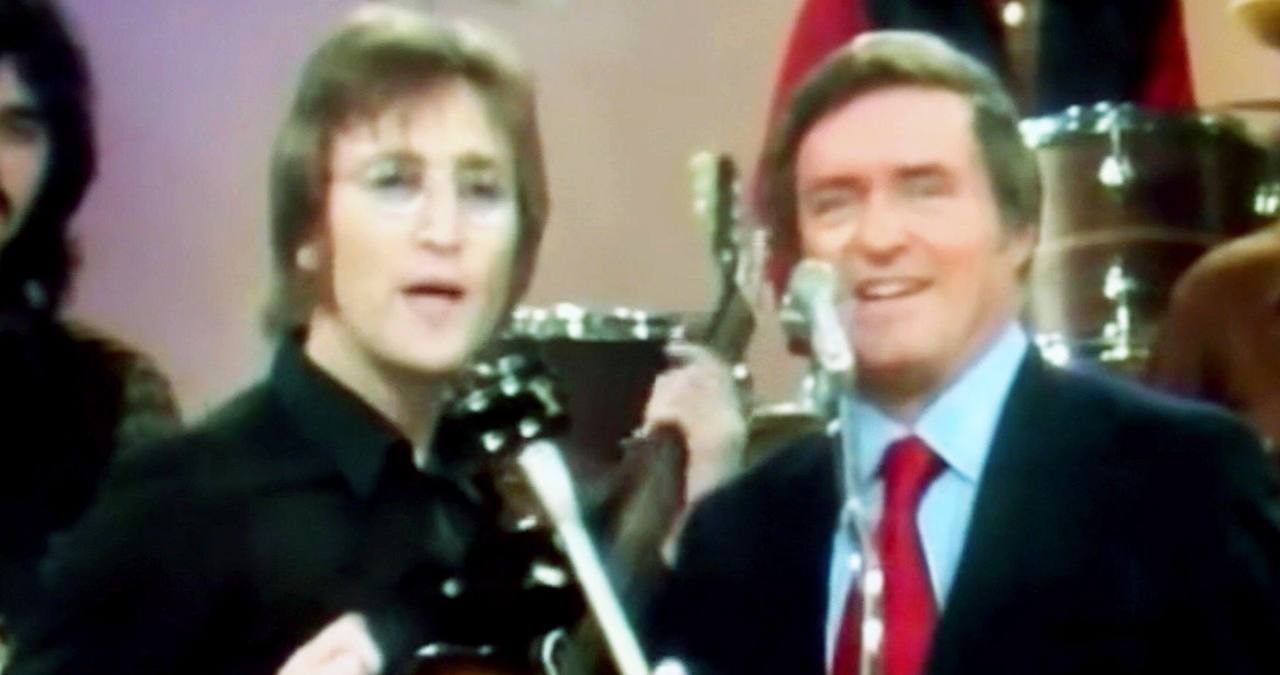
Lennon was hopeful that bringing intimidating guests, such as the leader of the Black Panthers, Bobby Seale, into this cosier space would do much to sway negative public perception.
“We hoped what it did was to make them less frightened of the fact that a Black Panther would like to say something,” Lennon said at a press conference following the tapings. “Which doesn’t mean he’s gonna come and shoot you to put his point of view across. Maybe we’ve opened their eyes a little to that.”
During his appearance (on the show aired Thursday February 17th) Seale was able to lucidly expound on his ideals through the television sets of millions, without any negatively-hued framing.
“We’re not nationalists. We don’t believe in nationalism. Nationalism is akin to superiority, is akin to racism, is akin to sectarianism,” Seale told the audience. This prompted a giddy Lennon to stress his backing of Seale’s anti-isolationist philosophy; “That’s what I said in my song! Imagine no countries.”
But the week wasn’t entirely focused on politics. Lennon and Ono also invited a variety of musical and comedy guests. These included soul legend Stevie Wonder, Asian-American folk group Yellow Pearl and psychedelic soul innovators The Chamber Brothers.
Biggest of all, though, was one of Lennon's foundational heroes, Chuck Berry.
On the comedy front, the aforementioned brilliance of George Carlin and improvisational sketch troupe the Ace Trucking Company.
The most memorable performance of the week - perhaps for all the wrong reasons - was the one between (a clearly thrilled) John, Yoko and Chuck.
Performing together, with Lennon's backing band Elephant's Memory, on rock 'n' roll tentpoles Johnny B Goode and Memphis, Tennessee, was an opportunity for rock royalty to come together… No pun (or reference to the-then ongoing legal dispute over that song's pilfering of Berry's canon) intended.
During the latter, Berry looked visibly pained at Ono's unexpected vocalisations, as can be witnessed in the oft-shared video below.
A more generous reading of this somewhat comical collision of trad rock ’n’ roll and the avant garde was that it underlined the exploratory fringes of music that John and Yoko were embracing and willing into the mainstream - and also just how far the former Beatle had come in just ten years.
Our sister site Louder has more on that widely-watched performance here.
“When [the Douglas bookers] first said, ‘Will you do the show?’ we said, ‘Yeah, can we bring Jerry [Rubin] and Bobby [Seale]?’” Lennon told the press conference. “And we mentioned a few other names - Chuck Berry, Bo Diddley, Little Richard. And the only ones they could get, or find, were Chuck Berry and Little Richard, but Little Richard was ill that day or something, so he couldn’t come. I wanted Bo Diddley and Jerry Lee, too, and just every day have something like that, you know. None of us got exactly what we wanted, but it was worth it just to be with Chuck Berry, man, it was just worth it!”
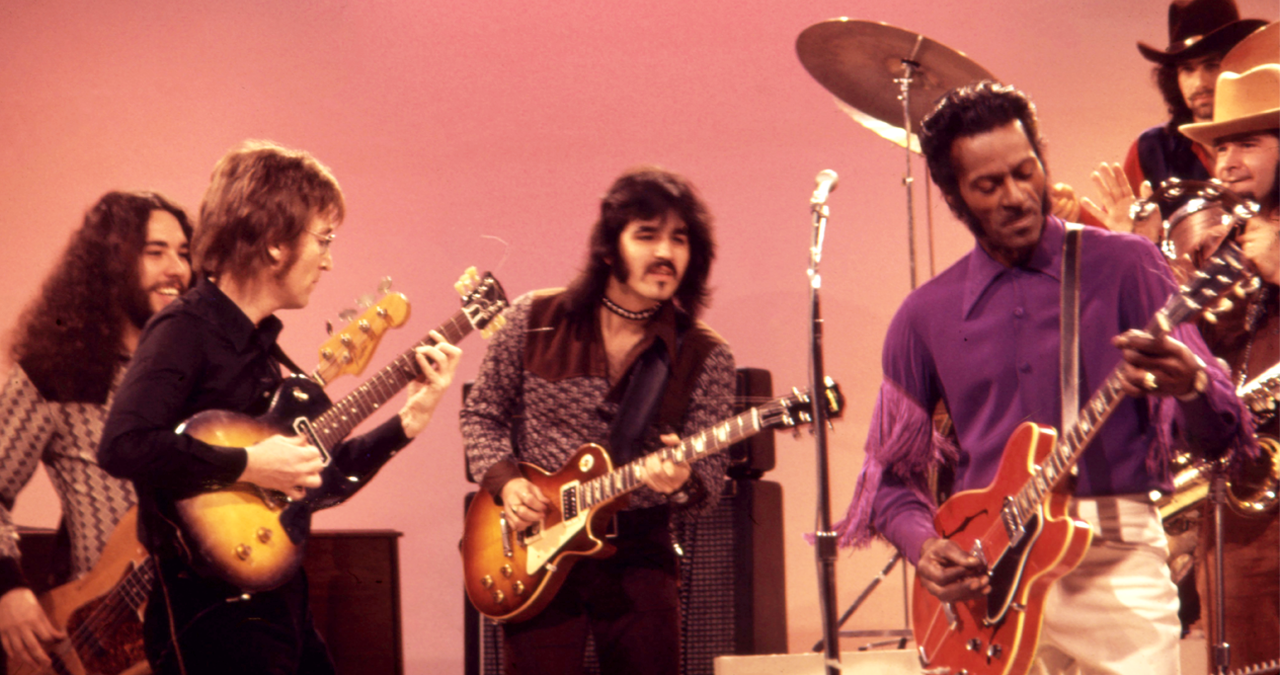
For both the Lennons and for Mike Douglas, the week was an absolute triumph.
Douglas would get his ratings - one of the highest-rated weeks of the series’ history in fact - and Lennon and his peers were able to coherently transmit their message(s) to the hard to reach frontiers of middle America.
But in higher-up quarters, there was, to put it mildly, some disquiet.
According to the writer and producer of the Lost Lennon Tapes radio series and journalist, Stephen K. Peeples, the Mike Douglas takeover was tantamount to an act of open war in the eyes of the Nixon administration.
“The FBI agents who were also watching Douglas that week filed a report labeling John a ‘security matter, new left’ and the Lennons’ friend and ‘political advisor’ Jerry Rubin (a guest on Day 2) ‘an extremist.’”
Lennon had significantly spooked the spooks.
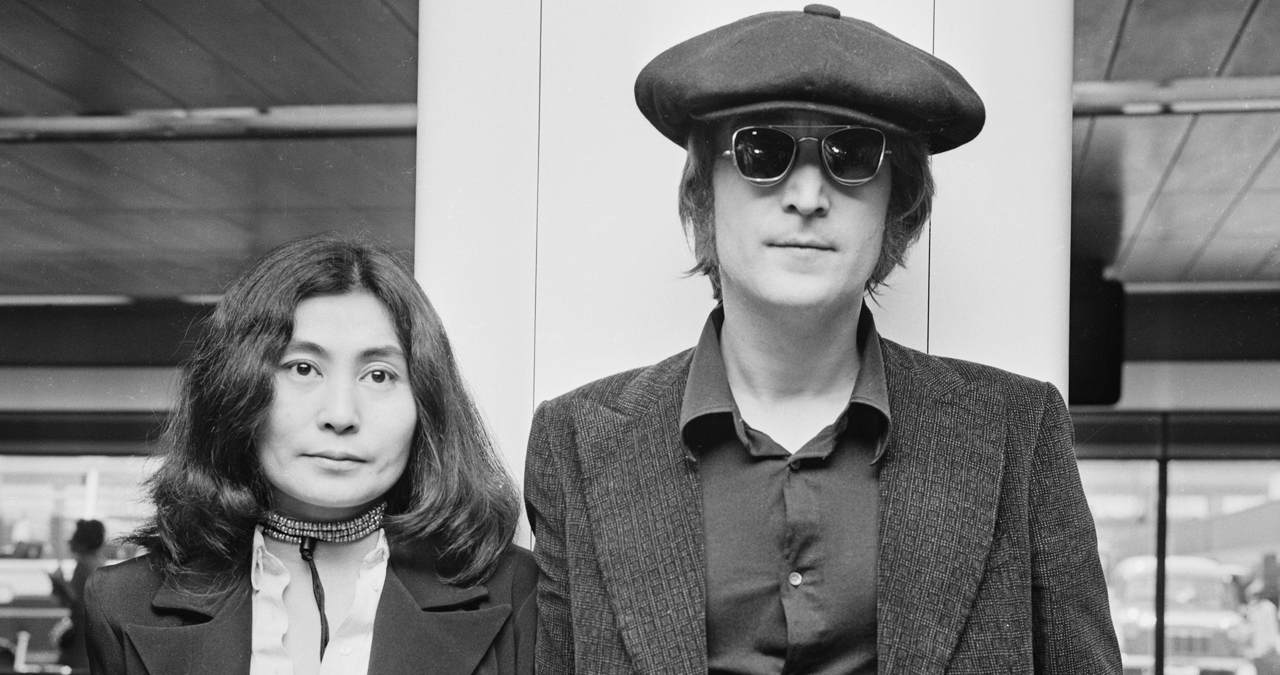
As highlighted in the New York Times in 1991, then FBI Director J. Edgar Hoover sent directives to bureau offices in New York, Los Angeles, San Diego and Washington to ramp up their surveillance of John Lennon. The feds had been on Lennon’s tail since December of 1971, after his appearance at the Free John Sinclair rally in Michigan.
FBI files (finally released in 2006, after the years-long attempts of historian Jon Wiener - author of Gimme Some Truth: The John Lennon FBI Files) reveal their extreme surveillance and frantic deportation efforts, as well as the outright terror the US government had at the time over the scale of Lennon’s voice.
Extreme action was taken. Lennon’s phone calls were bugged, contact with possible revolutionaries scrutinised and informants deployed to gather more evidence against this once nationally cherished Beatle.
Compounding the Nixon administration's fears was the looming threat of a mooted (and ultimately ill-fated) politically-charged concert tour that Lennon was in the early stages of putting together. Its potential influence on the November election was a very real concern.
More on this planned tour is covered in the recently released documentary film, One to One.
“Many of the documents obtained by Mr. Wiener are written in the almost cataclysmic tone of antidrug tracts like the film ‘Reefer Madness.’ reported the New York Times. “One memorandum is entitled ‘JOHN WINSTON LENNON. SECURITY MATTER DASH REVOLUTIONARY.’ Another contains the legend ‘All Extremists Should Be Considered Dangerous.’”
“When it first started, I was followed in a car”, Lennon told ‘Whispering’ Bob Harris in a now iconic Old Grey Whistle Test interview in 1975.
“My phone was tapped. People thought I was crazy then - I mean they do anyway - but moreso. [They’d say] ‘Oh Lennon, you big-headed maniac. Who’s going to follow you around. What do they want, that’s what I’m saying. What do they want? I’m not going to cause them any problem."
The Mike Douglas shows certainly exacerbated the Nixon administration's anxieties around the increasing number of voters now listening to rock’s most overtly left-wing figurehead. And the intertwining of the counterculture and popular culture over the last five years had been a worrying development.
It’s little surprise then, that in the month following the shows, the Immigration and Naturalization Service revoked Lennon’s visa, and begun proceedings to deport him back to the UK. Lennon’s 1968 marijuana possession conviction was cited as their thinly-veiled reasoning.
The deportation ploy would ultimately fail, as Lennon fought tooth and nail against it in court. He would finally obtain his Green Card in 1976, after a lengthy, costly battle.
Sadly, four years later, Lennon would be murdered by deranged fan Mark David Chapman. Gunned down outside his home at the Dakota building in New York.
Four months after the Mike Douglas show was broadcast, the Watergate scandal would spark the beginning of the end for Richard Nixon. To America - and the world - it was stark evidence of the depths of paranoia America’s then-president had sank, and his efforts to cling on to power at any cost became a national embarrassment.
Mired in controversy, Nixon finally resigned from office on August 8th 1974.
“Four months before the Watergate break-ins, these shows are broadcast, where these radicals have taken over daytime living room. This was seen correctly, I think, by the Nixon administration as a huge threat,” stated Erik Nelson in his interview with KCRW. “That's when they basically declared war on John Lennon after these shows were broadcast.”
Following the Watergate scandal - and Lennon’s gradual slide away from the overtly political sphere - the FBI interest in John's activities waned. Yet the ludicrously overreactive behaviour of the US government, in response to someone merely trying to shed light on alternative points of view, has striking relevance in today’s political climate. A climate where freedom of speech, the silencing of political opponents and the actions of heavy-handed government are still critical issues in America.
“We wanted to do the shows to show that we are working for peace and love, and also to change the world, not with violence, but with love,” Yoko told the post-show taping press conference. “And everybody that we selected is participating in efforts to change the world.”
"This week in 1972, when John Lennon and Yoko Ono essentially hijacked the airwaves and presented the best minds and dreams of their generation to the widest possible mass audience of what was then called ‘Middle America’ was as far as the counterculture would ever get,” stated Erik Nelson in an interview with Variety.
“Not just music but a prescient blueprint for the future we now live in."
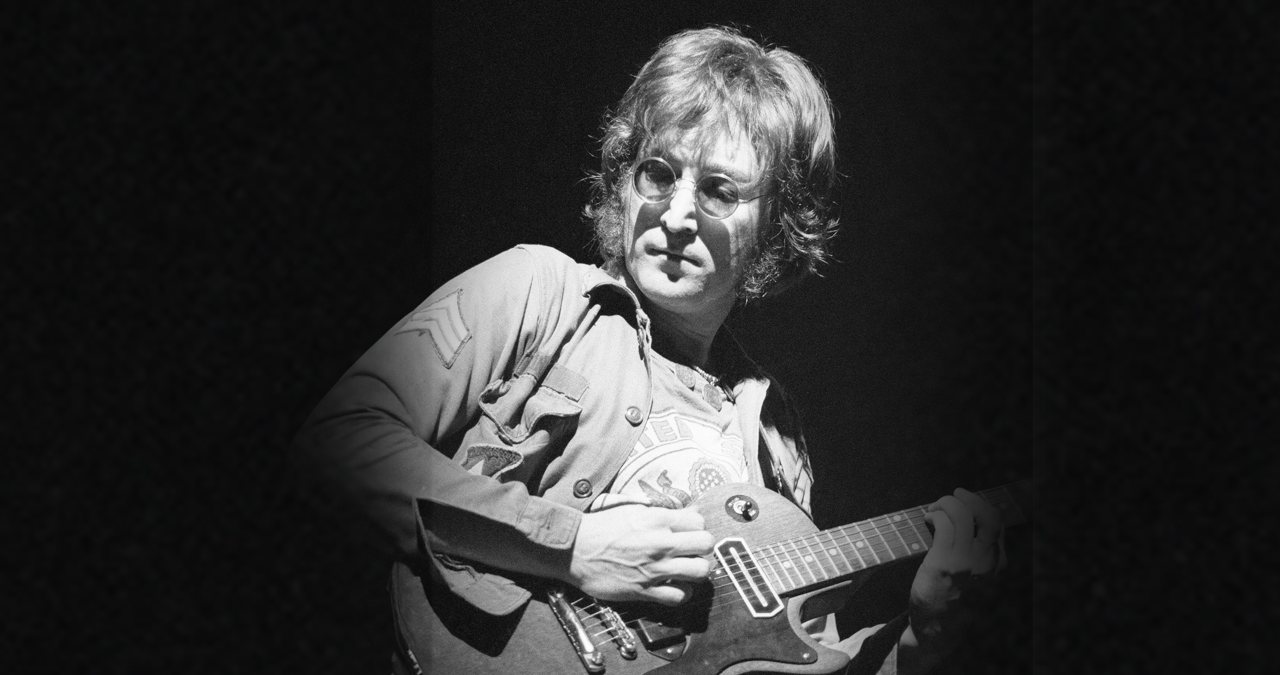

I'm Andy, the Music-Making Ed here at MusicRadar. My work explores both the inner-workings of how music is made, and frequently digs into the history and development of popular music.
Previously the editor of Computer Music, my career has included editing MusicTech magazine and website and writing about music-making and listening for titles such as NME, Classic Pop, Audio Media International, Guitar.com and Uncut.
When I'm not writing about music, I'm making it. I release tracks under the name ALP.
You must confirm your public display name before commenting
Please logout and then login again, you will then be prompted to enter your display name.

